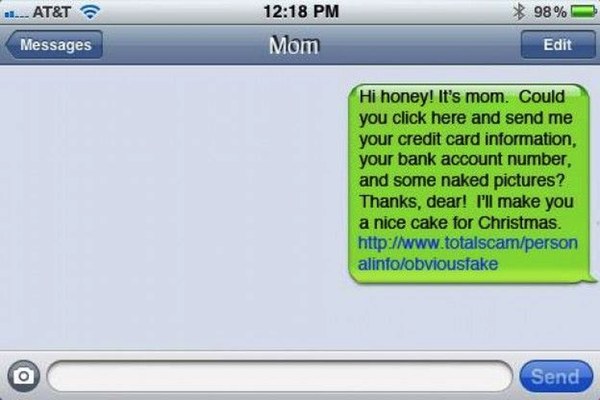
The world can be a dangerous place — bad people want your data, your stuff and your money. The current iPhone SMS spoof is a great example of the lengths the low and unscrupulous will go to get your personal information. The sad truth is that SMS spoofing is super easy, not illegal and costs almost nothing to do, which makes it harder to understand why it hasn’t made headlines before.
According to SMSSpoofing.com, SMS spoofing isn’t illegal in the United States. Moreover, spoofing an SMS message is actually trivially easy to do. In fact, there is an iPhone SMS spoof app designed to specifically do that and it is available on — you guessed it — the Cydia store.
Although Apple and iPhone seem to be getting the most grief over the issue — gotta drive those pageviews — SMS spoofing works on just about any phone, smart or otherwise.
And, to underscore just how easy SMS spoofing is, Digital Trends spells it out clearly:
Just by typing a few words into a text string, a nasty spammer can change the User Data Header in the PDU code, and make it appear to the recipient that the text is coming from their beloved “Mother,” “The FBI,” “Messengers From Space,” or any other recipient they choose to specify.
In the case of the iPhone, Apple’s SMS and notification interfaces don’t display the full header (i.e. where the real sender information is displayed), so it is easy for unobservant, dull and/or self-harming users to get fooled.
The bottom line, whether you use an iPhone, Android or something else, do NOT provide private, sensitive or any other information to any person who contacts you via SMS. And, if your real mother actually does contact you via SMS to get your credit card number or whatever, pull her aside and tell her just how foolish such a request really is.
Further, as Apple has suggested, their iMessages app is more secure than carrier (i.e. Verizon, AT&T, Sprint, etc.) SMS services and, best of all, Apple’s wall-garden text service is free, free, free.
The best way to avoid the iPhone SMS spoof threat? Use iMessage.
What’s your take on iPhone SMS scams? Have you been affected? Let us know in the comments.


